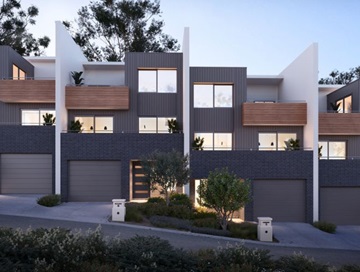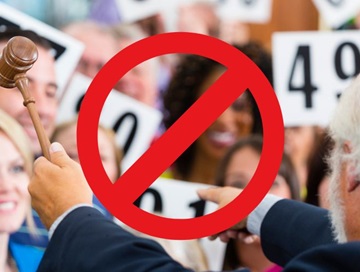Trying to navigate your way through the tenancy process can be overwhelming. Whilst having good communication with your property manager is key to a happy tenancy, it can be daunting when situations arise and you are unsure of your rights.
The REIWA Information Service is there to help with any questions you may have relating to your rental situation.
Here are the top 10 questions recently asked to the REIWA Information Service by tenants.
1. My air-conditioner is not working and has not been repaired, what can I do?
Perth's hot summer combined with the many new homes currently being built has created a demand for air conditioning services and shortage of availability.
Firstly, we recommend checking that the RCD for the air-conditioning has not tripped.
Secondly, notify the property manager that the system has stopped working and try to obtain an intended course of action.
During hot weather, air conditioning service providers are very busy and it can be difficult to obtain repair services in a timely manner, which may lead to an inconvenient delay.
You can speak with your property manager about having the air-conditioning system serviced during the cooler months, so the risk of future malfunctions is minimised.
2. What notice is required to end my lease?
If you are in a fixed-term lease, you will need to be given a 30-day termination notice prior to the agreed end date of the lease.
If your lease is periodic, you will need to be given a 60-day termination notice.
Find out more about renewing or ending a tenancy agreement.
3. How much can the property owner increase my rent by?
The Residential Tenancies Act (RTA) does not restrict the amount of a rent increase, however, it would be expected that any increase would reflect the current rent for comparable properties in a similar location.
We suggest looking on reiwa.com to compare properties, if you are unsure how much rent you should be paying.
In addition to this, if you are on a fixed-term lease, your rent can only be increased if the written agreement provides for an increase and the method by which the increase will happen.
If your lease agreement is periodic, you must be given 60 days' notice prior to the rent increase.
4. Is the lessor allowed to show up at the premises for an inspection?
No. If the lessor wishes to conduct a routine inspection or be present at the inspection, they must provide a minimum of seven days and maximum of 14 days' prior to the proposed entry date.
5. What can I do if I have been given a termination notice but I cannot find another rental?
In the current rental climate, we understand the pressures faced by tenants, especially if your lease is ending and you need to find another rental.
We suggest speaking with your property manager about your difficulties and determine if the existing lease can be extended.
Speak with your property manager and determine what type of reference you will be given.
6. My lease is due to end in eight weeks, what action should I be taking?
Engage with your property manager and determine what the owner is thinking. Some questions you can ask to help you get a better understanding are:
- Is the owner seeking an extension?
- Is the owner seeking a rent increase? If so, how much?
- Is this in line with comparable properties in the same location?
- If I move what is my budget and what is available?
If you and the owner come to the decision not to renew the lease, you should begin searching for another rental property as soon as possible. Look at your rental history for this property. If you have a good track record of paying rent on time and have kept the property in good condition, you should not have any issues getting a good reference, which will increase your chances of finding a rental.
7. How much are break lease costs?
If you want to terminate your residential tenancy agreement, you will need to contact your property manager and discuss your obligations.
Unless otherwise agreed, tenants are required to continue with their lease obligations until the end of the tenancy. If you wish to end the lease before the agreed date, the lessor can claim financial losses as a result of the lease ending early.
Examples of the types of costs that come with a break lease claim include but are not limited to rent, advertising expenses associated with finding a new tenant, and the unexpired portion of any leasing fee charged by the property manager to the lessor. These costs may be charged until a new tenant moves in or the original tenancy expires.
8. How long does it take to get my bond back?
A common concern is the length of time it takes to disburse a bond after a tenant has vacated the premises at the end of the tenancy agreement.
What a lot of tenants don't know is that the bond money is actually lodged with a specific Government managed trust fund called the Government Bond Administrator and is not kept by the owner or managing agent.
After the final property inspection, there may be some back and forth between the tenant and property manager depending on the condition of the property.
Sometimes, the process can be delayed if there is a claim against the tenant or something needs to be fixed. Once all disputes are settled, it shouldn't take long for the bond money to be refunded.
We encourage tenants to keep communication open with their property manager.
9. What is the definition of "clean"?
Clean is a subjective term but it would be fair to say that it relates to the health and hygiene inside and around the property, including not leaving unwanted items that could attract insects or rodents. As a good rule of thumb, refer to the initial Property Condition Report to see if the property is in the same condition as when you moved in.
10. Do windows require locks?
Every tenant should feel safe and secure in their rental property and this is the owner's obligation.
Essentially, windows below the second floor of a building must be fitted with a lock that prevents the window from being opened from the outside. It does not have to be key lockable. Security screens can also be fitted but are not a legislated requirement.
You should speak to your property manager further if you believe your rental doesn't have sufficient security measures.
More information
For more advice for tenants, go to our renters section on reiwa.com





767bbbc6-4993-4f16-8933-e9b2baaac7a0.tmb-rcarousel.jpg?sfvrsn=8cf14270_1)



